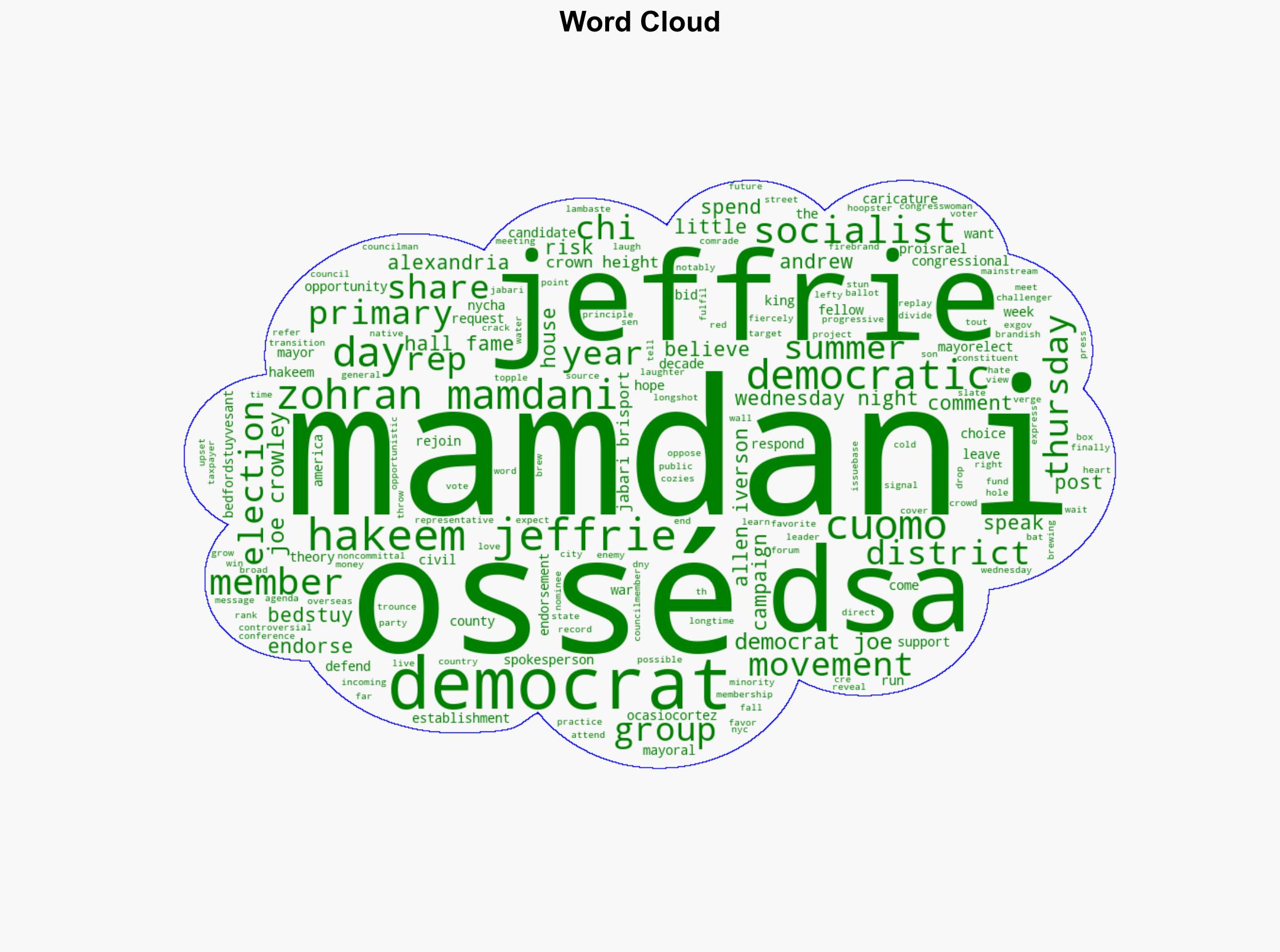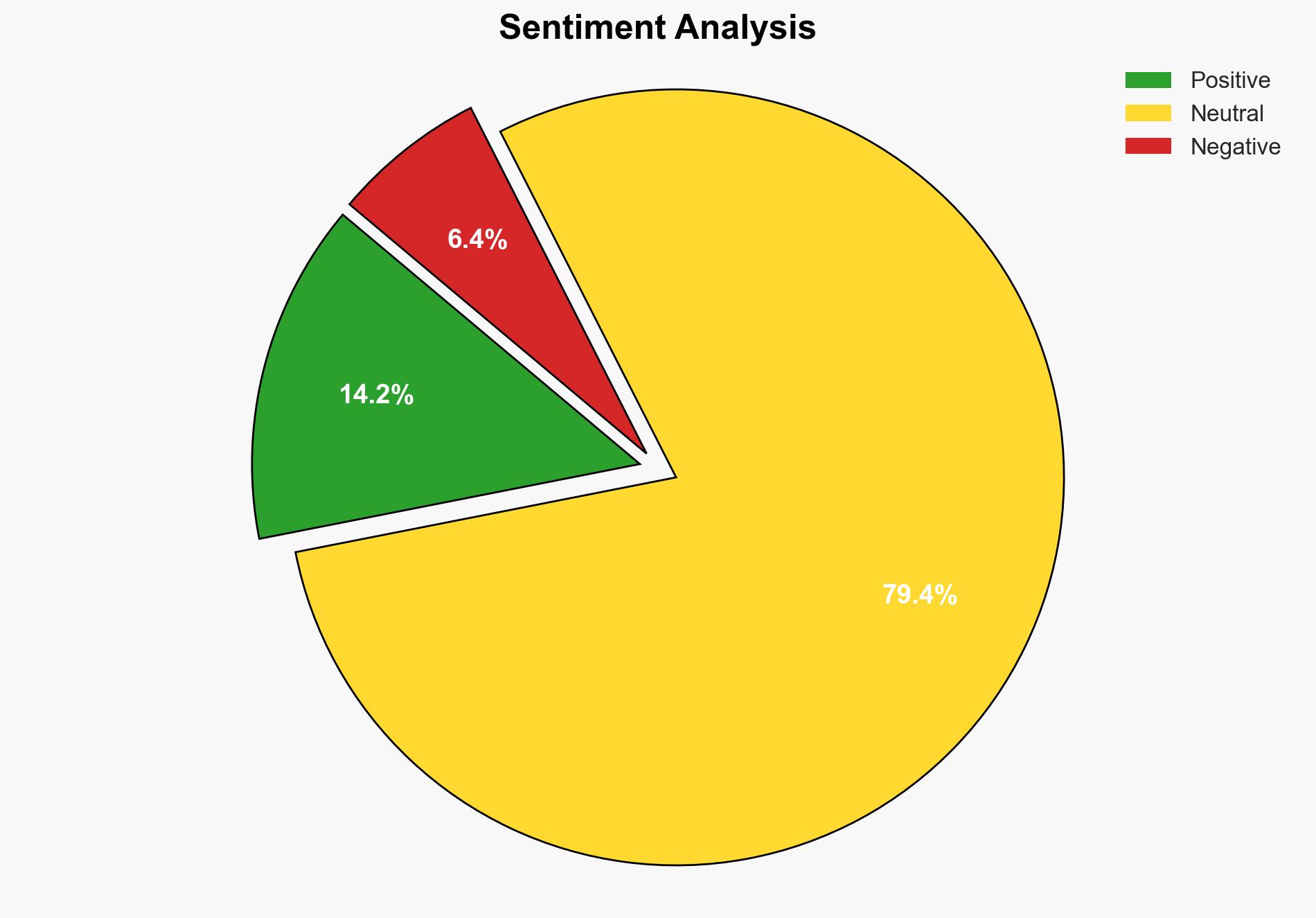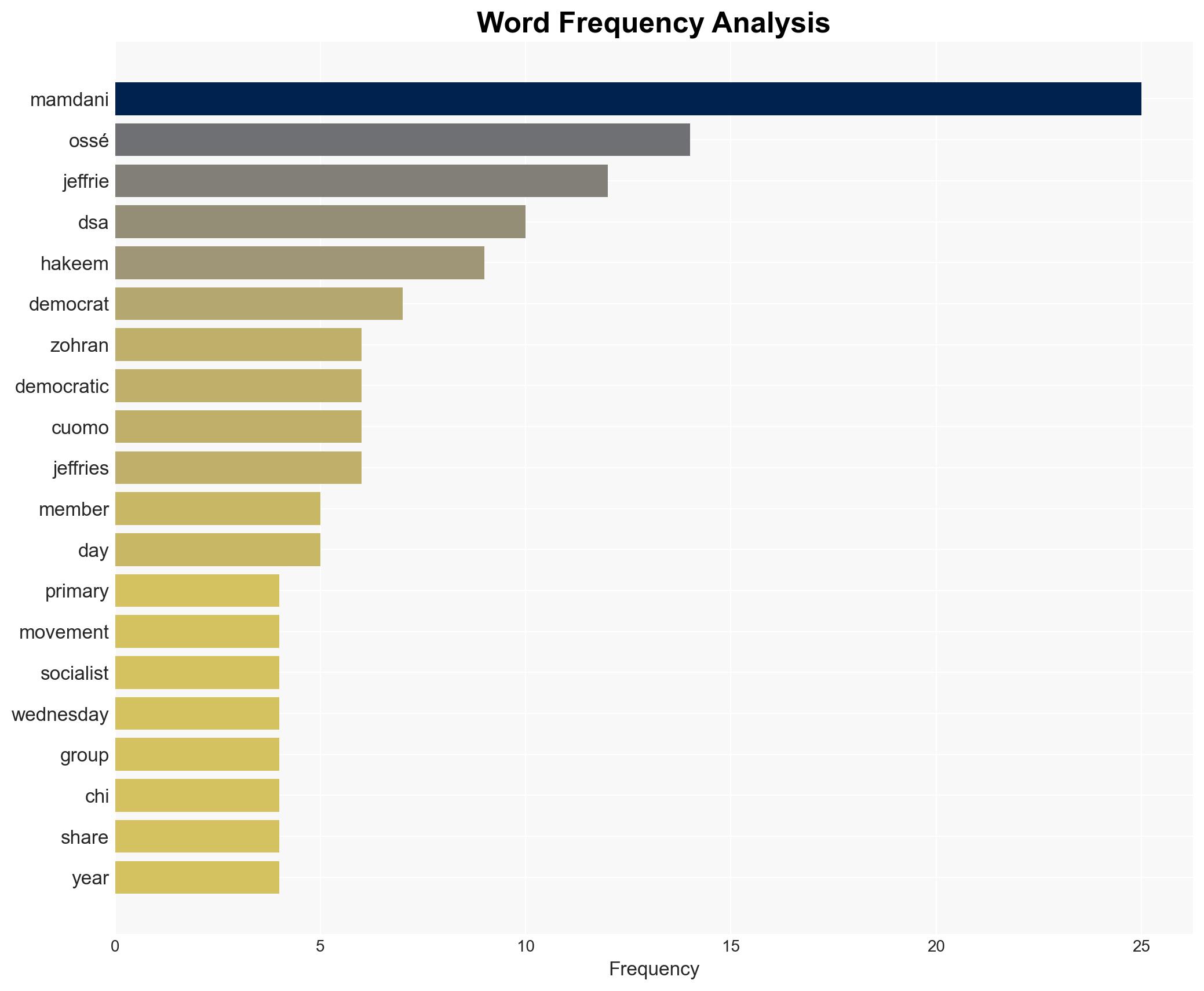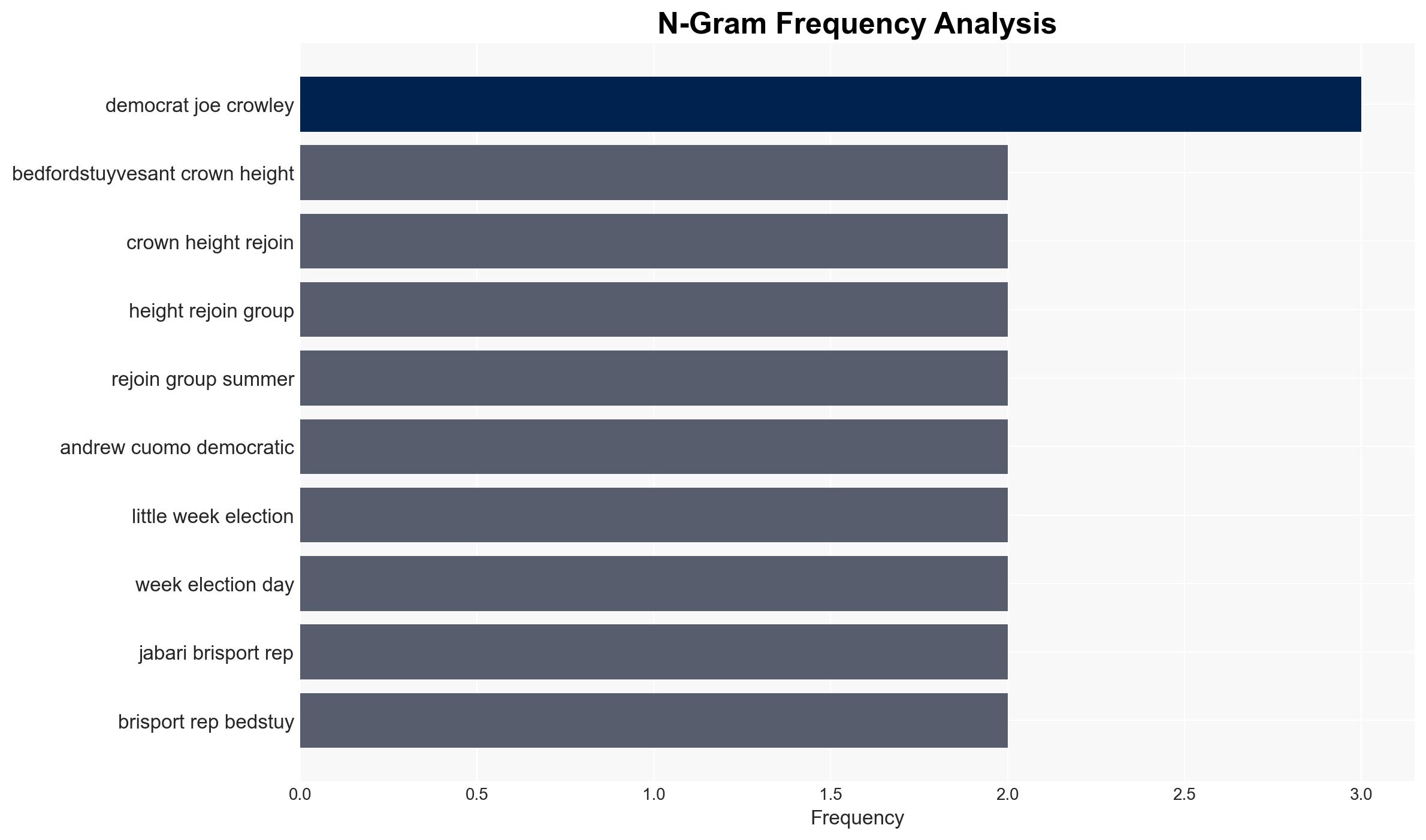DSA civil war brewing as Zohran Mamdani opposes members bid to topple Hakeem Jeffries
Published on: 2025-11-20
AI-powered OSINT brief from verified open sources. Automated NLP signal extraction with human verification. See our Methodology and Why WorldWideWatchers.
Intelligence Report:
1. BLUF (Bottom Line Up Front)
The Democratic Socialists of America (DSA) is experiencing internal conflict as Zohran Mamdani opposes a faction’s attempt to challenge Hakeem Jeffries. The most supported hypothesis is that this division could weaken the DSA’s influence in upcoming elections, with a moderate confidence level. Recommended action includes monitoring the situation closely and engaging in dialogue to prevent further fragmentation.
2. Competing Hypotheses
Hypothesis 1: The internal conflict within the DSA will lead to a significant weakening of the organization, reducing its political influence and ability to impact upcoming elections. This is supported by the visible division over the endorsement of Chi Ossé and the potential alienation of members who support mainstream Democrats.
Hypothesis 2: The conflict will result in a strategic realignment within the DSA, potentially strengthening its core principles and appeal to a broader base. This could be driven by a successful campaign to primary Hakeem Jeffries, similar to Alexandria Ocasio-Cortez’s previous upset victory.
Hypothesis 1 is more likely due to the current lack of consensus and the risk of alienating key supporters and allies.
3. Key Assumptions and Red Flags
Assumptions: It is assumed that the DSA’s internal conflict will not be resolved quickly and that the division will impact their electoral strategy. Another assumption is that mainstream Democrats will not intervene significantly in the DSA’s internal matters.
Red Flags: The potential for increased public disputes within the DSA, leading to negative media coverage. The possibility of strategic deception by factions within the DSA to undermine opponents.
4. Implications and Strategic Risks
The primary risk is the DSA’s reduced ability to influence elections, potentially leading to a loss of seats or influence in policy discussions. Political fragmentation could also lead to a loss of credibility among voters. Escalation scenarios include increased public infighting and potential cyber or informational attacks by external actors seeking to exploit the division.
5. Recommendations and Outlook
- Engage in dialogue with key DSA factions to mediate and find common ground.
- Monitor public statements and media coverage for signs of escalating conflict.
- Best Case: The DSA resolves its internal conflicts and emerges stronger with a unified platform.
- Worst Case: The DSA’s influence wanes significantly, leading to electoral losses and diminished political leverage.
- Most Likely: Continued internal conflict with moderate impact on upcoming elections.
6. Key Individuals and Entities
Zohran Mamdani, Hakeem Jeffries, Chi Ossé, Alexandria Ocasio-Cortez.
7. Thematic Tags
Structured Analytic Techniques Applied
- Cognitive Bias Stress Test: Expose and correct potential biases in assessments through red-teaming and structured challenge.
- Bayesian Scenario Modeling: Use probabilistic forecasting for conflict trajectories or escalation likelihood.
- Network Influence Mapping: Map relationships between state and non-state actors for impact estimation.
Explore more:
National Security Threats Briefs ·
Daily Summary ·
Support us





